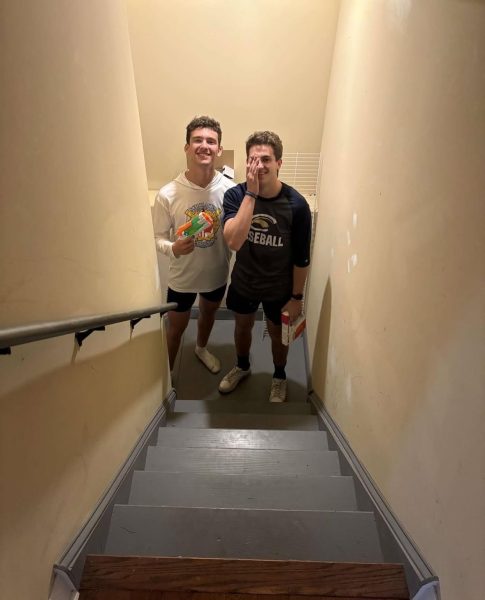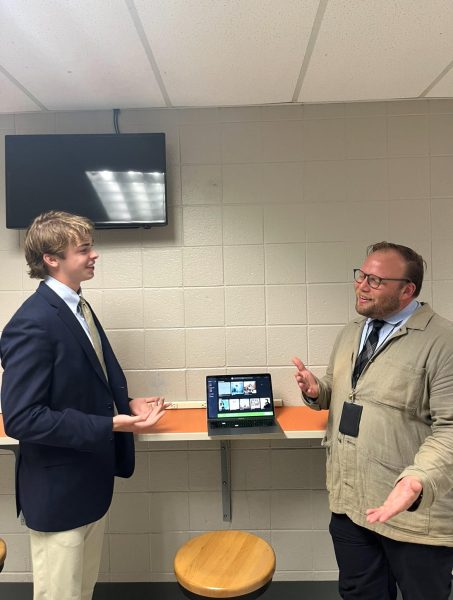Updated coursebook for the 2021-2022 school year
As the current school year begins to wind down, students should look ahead for some exciting course options for the upcoming school year.
In previous years, an updated coursebook has generally been skimmed over by students, ending with a typical class selection. This year however, some interesting additions have been made, including various online options and a few classes that Malvern has never seen before, including meteorology, poetry classes, and war literature.
Online learning during the COVID-19 pandemic has brought a plethora of new ideas to the Malvern Prep community. All across campus, teachers have improvised in various ways to accommodate for socially distant learning. Although conditions are not exactly ideal, some aspects of online learning will be valuable for future implementation.
Mr. Patrick Sillup, Assistant Head of School for Academics, shared some insight on online learning.
“Although it’s not ideal in all situations, asynchronous learning is here to stay… in some ways, it can be more intimate than an in person experience, especially if that online cohort is small. We are intentionally going to keep those online cohorts small this coming year,” Sillup said. “Students that are enrolled will be able to feel the intimacy of online learning, and course facilitators will easily be able to work individually with students.”
He elaborated on how beneficial a smaller online course can be for students, stating, “When you’re in a group that’s about eight to ten and you’re asynchronous, you can easily address a question individually as opposed to collectively focusing on it with the whole group. I’m not saying that one approach is better than another, but depending on your style as a learner, it might really fit for you.”
The new online options for the 2021-2022 school year include Business Branding & Marketing, Nutrition 101, Proposal Writing, Action Research, Honors Physics, and Biblical Studies. Classes will be offered to all grades with the exception of biblical studies for ninth grade and physics for eleventh and twelfth only.
Of course, the typical in person classes will be resumed, and students should expect a return to five days a week with in person learning.
The English department has some interesting additions, such as Law and Literature, Exploration of Poetry, along with Afghan and Iraqi War Literature. These courses will be offered for eleventh and twelfth grade students.
The science department at Malvern has seen multiple additions throughout the years, and this was no exception. Meteorology will be offered to eleventh and twelfth grade students this upcoming school year, offered by current science teacher, Mr. Matthew McDonald.
Mr. McDonald expressed his passion for meteorology and desire to share it with others, saying “I love the weather. I’m not necessarily a meteorologist (although he did study it in college), but I can definitely teach it, and I’m super excited to do so.”
Students in that class will be focusing on factors that influence our weather, mainly upper air dynamics and how they affect what we are experiencing down here.
McDonald also explained the process for creating a new class.
“I approached Mr. Osinski, the head of the science department, with my idea, and we eventually put my plan into motion. Planning it has been the fun part, because I’m not restricted to any specific curriculum. I know what I want students to get out of it, and I’m glad to be able to make it what I want it to be.”
“We’re really fortunate to be at Malvern during a time where they’re not just shooting down new ideas,” said Mr. McDonald. “I’m grateful for an opportunity to be creative with my class, and I’m looking forward to a great year.”
McDonald and Sillup both encouraged students to check out the coursebook for any new classes that may be of interest to them.
“If there’s anything we learned from the past year, it’s that we have to be flexible… the way in which we’ve always done things isn’t necessarily the way they need to be done,” said Sillup. “We are constantly designing ways for students to access content and build skills which are so critical for their next steps.”






